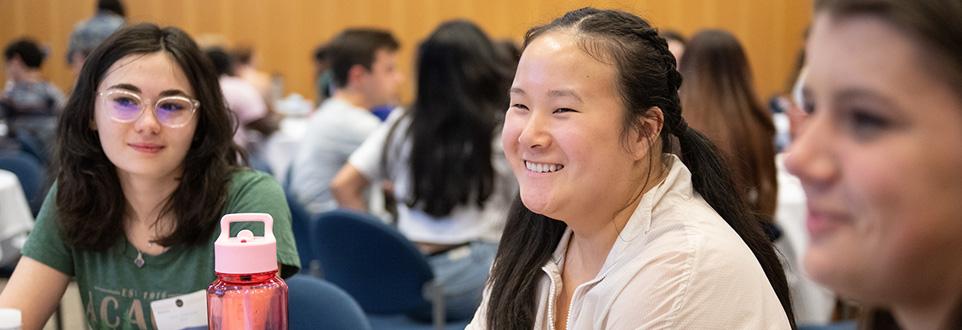FAQs


Mentees are selected based on the thoroughness of their application as well as their demonstrated understanding of the program and commitment to it. We use the application to closely find a suitable mentor who will be able to assist and support the mentee’s transition to U-M, so complete answers that give us a comprehensive picture of the mentee are very helpful. We also are limited to the number of spots we have in each academic discipline but do our best to provide as many mentoring opportunities for incoming students as possible.
The Mentorship staff assigns mentees to their mentor groups according to similarities in academic interest, extracurricular activities, and career goals. In the application, prospective mentees will be asked to indicate which criteria are most important to them. As stated above, we utilize prospective mentee applications to determine group assignments. Considering the popularity of the program, we cannot always guarantee that a mentee will be placed with mentors who have identical interests.
Mentees are expected to remain active for the entire fall semester. We realize that students have multiple interests and responsibilities, which is why Mentorship is designed to supplement the student experience and not compete with other obligations. Mentees are expected to actively engage in group activities and be responsive to their group members’ communications. Please view the mentee contract for more information.
Mentorship does not have a tutoring program. However, mentors are great resources who can help you discover the myriad academic resources provided by the University of Michigan. They can also give tips on how to succeed in classes and make a smooth transition from high school to college courses.
Mentorship is designed to help you expand your network with and beyond your assigned group. We sponsor large activities and encourage all participants to attend. These program-wide events provide you with a chance to meet other mentees, peer mentors and Faculty/Staff/Graduate Student (FSG) Mentors. Consider your mentorship group as a “home base” with a direct connection to more than 300 other people at U-M!
Through Mentorship, you'll have access to a wide range of activities to match your interests. From community-building social events like our country fair and cider mill trip to learning and resource sharing activities like our Summer Opportunities Workshop, there’s something for everyone. You’ll get the scoop about both Mentorship and U-M sponsored activities regularly through our program.
You’ll find Mentorship to be a very flexible and fluid program. We are first and foremost a resource for all participants. Each mentorship group creates their own “ground rules” for participation, whether it is scheduling biweekly coffee dates or attending a monthly performance series. Program-wide events will be planned to connect you with other students, faculty and staff outside of your group as well as to expose you to the wonderful opportunities on U-M’s campus!
Due to the limited number of Peer Mentors representing Engineering, Kinesiology, Nursing, Music, etc., it is more competitive for mentees looking specifically for Peer Mentors in those areas. However, some units provide mentoring programs specifically for their students. For more information visit the websites below:
Mentorship is designed to assist you with your overall transition to campus. Our goal is to provide you with an immediate support network by connecting you with a dedicated Peer Mentor and access to a cohort of FSG mentors. Participation is not based on housing, specific classes, or meetings. Many students take advantage of mentorship in addition to other learning communities and programs. We encourage you to make a personal decision based on your individual needs when applying to the University Mentorship Program.
The University Mentorship Program is a program housed in the Office of New Student Programs (ONSP), and coordinates with other branches of the ONSP office to provide services to U-M students. Other initiatives housed in ONSP include student/parent/transfer/International orientation, Welcome to Michigan, Transfer Connections, Military and Veteran Services, University of Michigan Educational Theatre Company (UMetc).